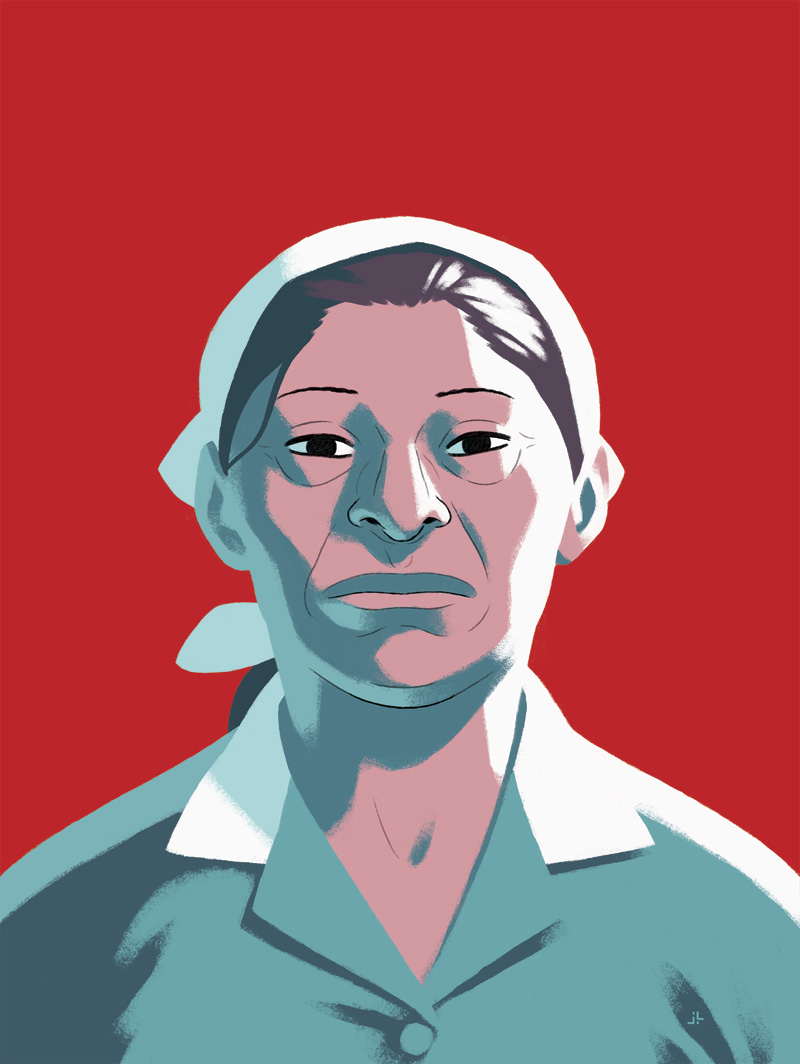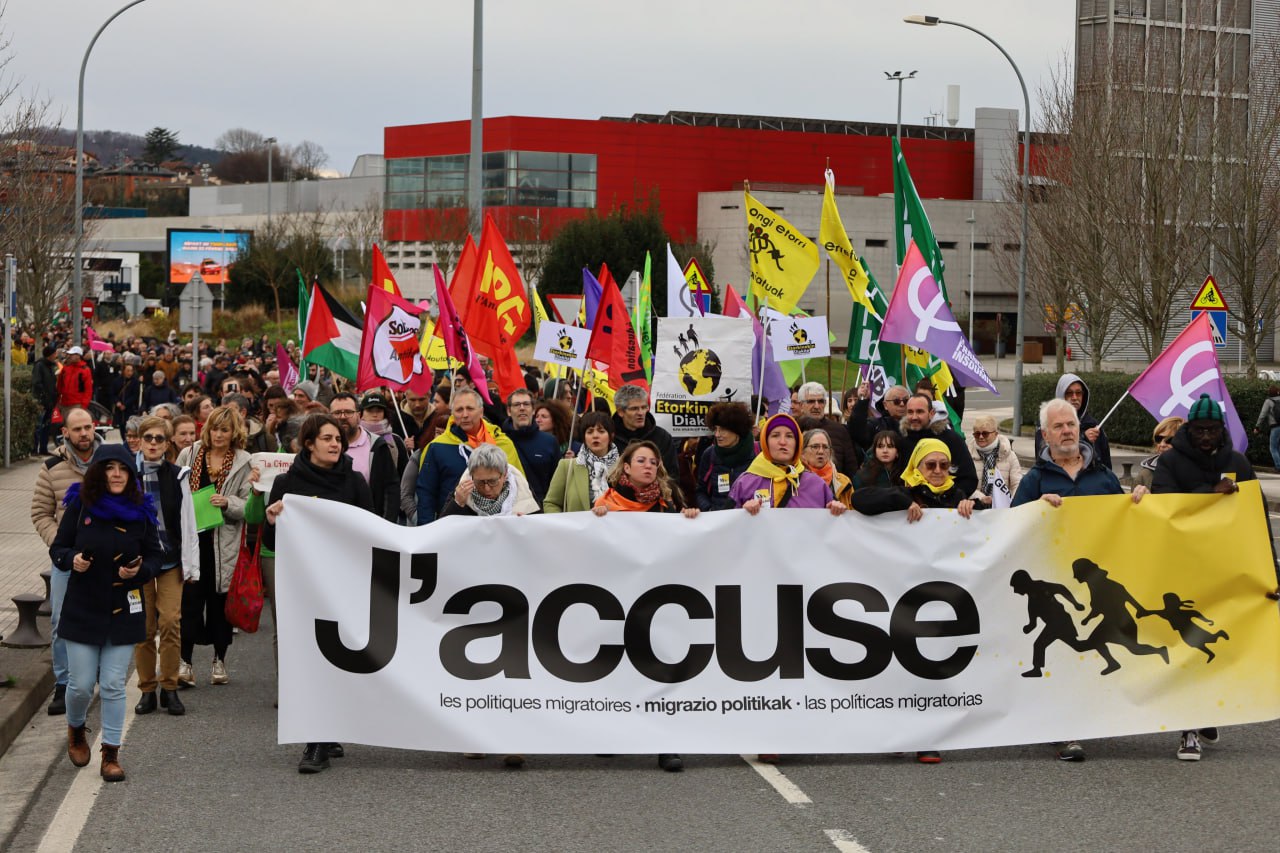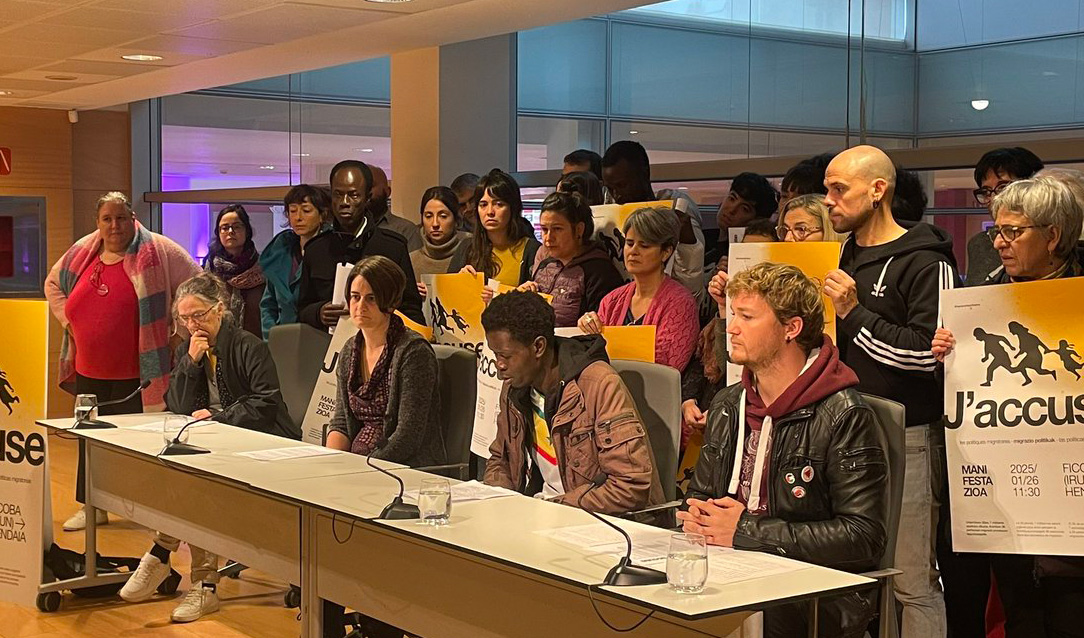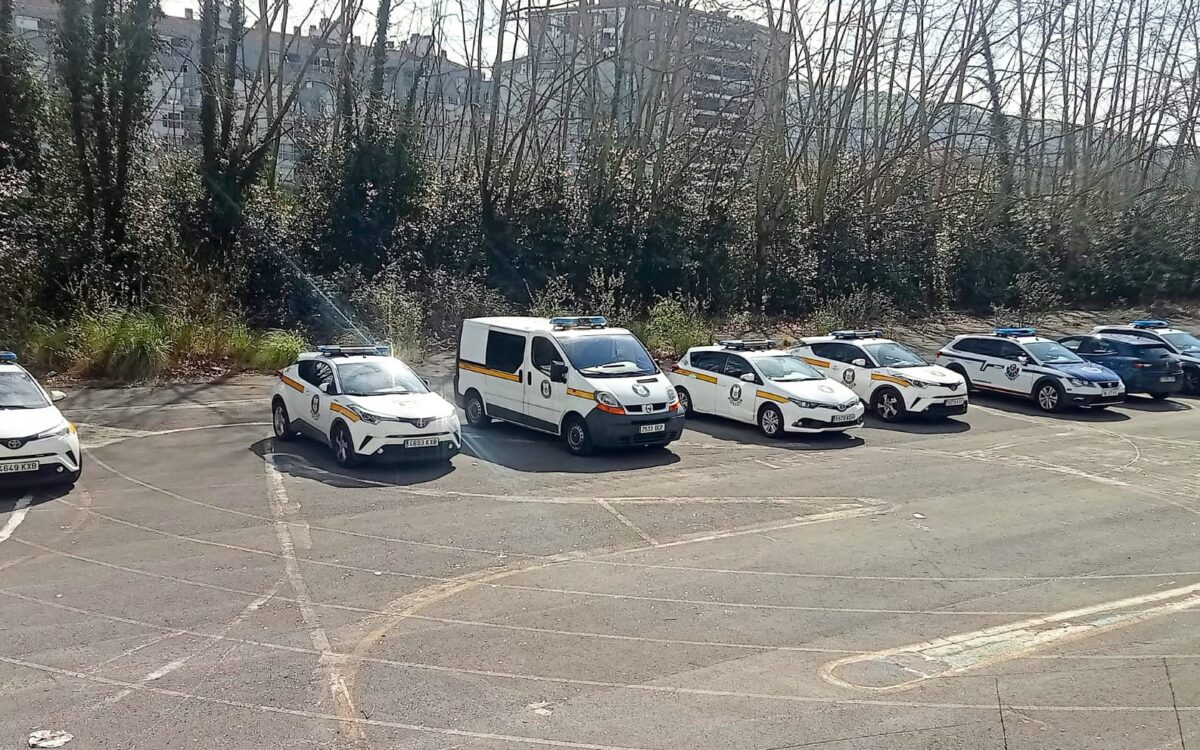Removing the lid from what you don't see
- They say that it takes time for coexistence, that it takes relationships to live together and that in our society (we have talked about the Basque Autonomous Community) “we” live here and ‘them’ there. That is what Mr Mikel Mazkiaran, Mr Gorka Moreno and Mr Katia Reimberg have told us. They agree that we live in peaceful coexistence, but they know that a certain balance that is not ideal is fragile. Peaceful coexistence does not mean that the immigrant does not suffer discrimination. The most abundant discrimination occurs on a day-to-day basis, often unnoticed.
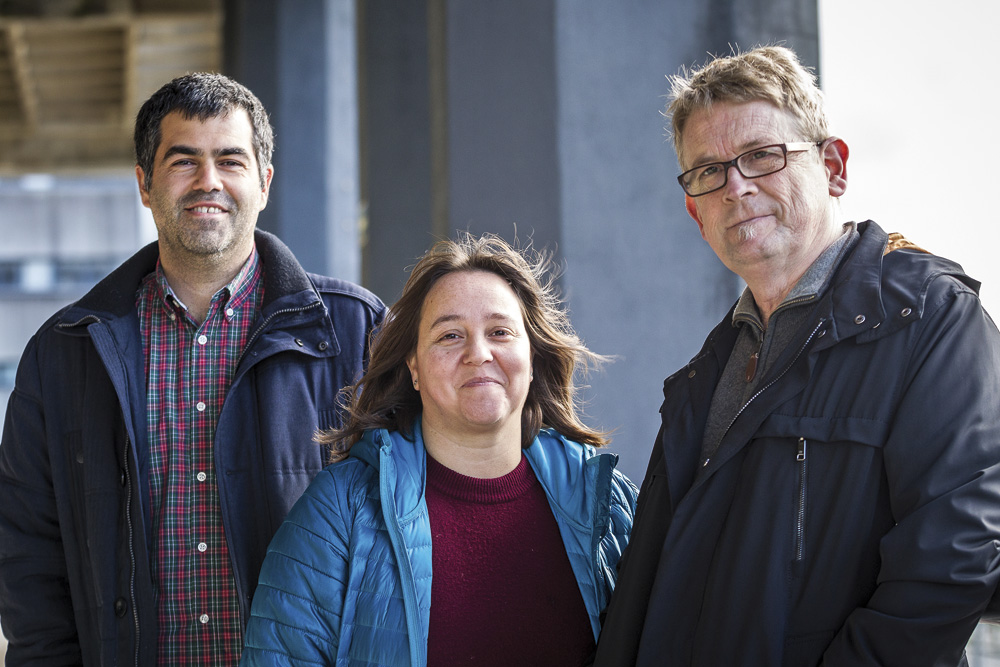
Lasarte-Orian bizi da eta 1967an jaio zen. Espainiako Estatuan argitaratzen den Arrazismoaren Urtekariaren koordinatzailea da.
1979an jaio zen Irunen eta Zornotzan bizi da. Soziologia eta Gizarte Langintza Saileko irakaslea da EHUn. Etorkinen integrazioaz eta haiei buruz bertakoek dituzten iritziez egin du hainbat ikerketa lan.
Sao Paulo (Brasil),1977. Donostian bizi da. 2009tik etorkinei ikasketak homologatzeko aholkularitza eskaintzen die. Harreman estua du etxeko eta zaintza lanetan ari diren emakume hegoamerikarrekin.
What is the photo of the immigrant coming to our country?
Gorka Moreno: We have highlighted three phases when it comes to making the arrival photo of immigrants. The first phase is closely related to the economic boom period from 2000 to 2007. That's when he got closer. They came mainly from South Americans, Ecuadorians, Colombians, Bolivians. In the second phase, in the recession, flows decreased, even in the years 2013-2014. It was then that the number of South Americans fell sharply, the classics (Moroccans) continued to come and new ones appeared, such as the Pakistanis. In the first phase they come mainly from the countries of origin and in recession, again, of origin and at the same time as other autonomous communities. In the third phase, economic activation, especially in the last two or three years, has increased the South American flow, with the presence of Paraguayans, Hondurans and Nicaraguans, as well as of the Colombians who once were classic. The Bolivians also came down and we've seen them come up. In other words, it seems that the economic situation marks the size of the flows, and it seems that when we are in a period of economic prosperity, society demands the South American population. Katia will better explain who those South Americans are.
What about gender?
Dr. G. Moreno: It depends on the country, when Latin Americans arrive the majority are women, then they bring the family and the gender is balanced. Ecuadorians and Colombians have achieved a fairly large balance, while the most modern, Honduran and Nicaraguan groups are much more feminized. The Maghreb and sub-Saharan groups are much more masculine and those of Europeans and Asians, apart from the Pakistanis, are more balanced. And for the picture to be more complete: young people come.
Katia Reimberg: "In the area of female caregivers, the social elevator does not work. Mothers start caring and manage to bring their sons and daughters in Latin America. Mothers start working for hours and daughters work in-house."
Katia Reimberg: I know a particular sector. Most of the people who come from South America are women, they take care of them, spend the whole week in a home or are employed at home for hours.
Mikel Mazkiaran: It seems that we are again at the turning point, there are more entrances than exits. On the other hand, historically it has been and continues to be the case, the entries are informal, do not correspond to the Aliens Act. They come as tourists, spend their time, here they become irregular and start to regularize.
Another feature is that migratory flows are largely self-regulated. Artifacts from Europe, the Aliens Act, etc., have some effectiveness. Migratory flows are self-regulated.
Dr. G. Moreno: They don’t catch the ball of the world and say “I’m going here”, let’s say they do a certain “market analysis”.
K. Reimberg: For example, the fact that most people who come from Latin America are women is no coincidence. It is precisely from here that there is a request, for reasons of vigilance. If there was no demand, those women would not come here. Gorka, you said that the most recent are those in Honduras and Nicaragua, these women are usually the first members of the family, they are the only parents and have children there in their custody. Here they occupy a certain field of work. They know what they're coming to, they know what the job is. It is, therefore, a female arrival. At the time of construction, it would be male. As a result of the crisis, there is a change, the first men, now women. This change has occurred because there is a social reality, because the issue of care has not been solved, because no measures have been taken, the crisis of care has been taking years and is now being balanced at the expense of these women.
What is the most vulnerable sector?
K. Reimberg: I believe that the group of women's domestic workers is the most vulnerable.
Dr. G. Moreno: With data from 2010 and 2014, the most vulnerable group is Maghreb and Sub-Saharan Africans. Activity rates are the lowest, with very high unemployment rates. The Chinese collective is totally detached, its economic indicators are very close to those here. Eastern Europe and southern America (Uruguay, Brazil, Argentina) have relatively good indicators. Halfway, there are the Romanians and Latin Americans, who, as Katia has said, have a high degree of job insecurity in care tasks, but also a very high employment rate. I am not going to say that they are in the best position in the labour market, but they are better than others. That's what socioeconomic data tells us.
M. Mazkiaran: The survey shows that some groups have a high degree of vulnerability, quite apart from others, as demonstrated by the Maghreb group. The reflection we can make is how far the only view should be when public institutions conduct public policies. Perhaps it is time for each group to have a different view, the needs of Romanians and Maghreb are not the same.
.jpg)
As for the weakest teams, Gorka and Mikel spoke of the Maghreb and Katia of South American women. How should we understand this?
M. Mazkiaran: It's a matter of vision. If you put the focus on the origin, the Maghreb people are the most vulnerable. If you look at the labor sector, I very much agree with Katia, the most vulnerable labor sector that brings together immigrants is that of female caregivers. The limit between ill-treatment and excessive working conditions is very slim.
Dr. G. Moreno: Surely the surveys do not explain this type of data.
How strong are prejudices, stereotypes? Are they just an attitude or do we have some behaviors as a result of those mentalities?
K. Reimberg: I believe that what we are saying here is seen in practice, is reflected. It happens a lot more than we perceive. Many prejudices and stereotypes go unnoticed. In the media, we are taught the basis of discrimination, but in the day to day, almost invisible, we are given a lot of wood through stereotypes.
Dr. G. Moreno: I agree with that statement. I understand, Katia is in practice, has information related to everyday life, and our gaze is farther away. I think there is a limit between prejudice and the step it can take afterwards. You said that people are radical in the bar, and you sit down and then you go back to the lobby and you salute the immigrant living next to you normally. Of course, if you have bias, you'll tend to act accordingly, but there are ways to break that sequence. Anti-rumours strategy, for example (and I have much to say about this) and social sanctions. It also happens on gender issues, you think one thing, but you don't say it or you don't act accordingly, because on immigration issues, the same thing can happen. It is important to promote attitudes in favour of immigration and diversity, but once the stereotype is established it is virtually impossible to eliminate it. It's more important to put a cap on ourselves so that we don't go from prejudice to behavior.
Political speeches have a lot of influence, a politician says something concrete and gives wings to a prejudice.
M. Mazkiaran: Discrimination follows the following path: We have stereotypes, we create prioritizations. Most of us don't go from those prejudices to action, we stay there. One element that helps to take the last step is speech. Through strategies like anti-rumors, we can develop our own discriminatory behaviors, but this strategy is not valid in the face of discourse. Because it's no longer a rumor, it's an articulated speech. It is very difficult to cope with the political discourse, but it is vital. If politicians tell us that it is right to discriminate, it is good to discriminate. On the one hand, in the bar we have made a collective catharsis by taking wine, and on the other, the politician has said that nothing happens.
K. Reimberg: From what's coming, we have an image made. To be a household employee, the employer asked me by phone which country I belonged to and I told her that I was a Brazilian. We were about to see each other. When we were in front of him, he said: “You’re Brazilian, but white.” That's a bias, that's discrimination, if I'm white, I'm good, and if I'm not so good, right? Before you say it is very easy to cross the border from one side to the other.
Mikel Mazkiaran: "We have peaceful coexistence, and being peaceful is nothing wrong. Still, I'm not as optimistic as Gorka. The data is there, job insecurity, etc."
What are the strongest prejudices?
M. Mazkiaran: We can join the Ikuspegi Observatory, related to aid. It is a highly internalised prejudice: immigrants receive more aid than the rest of the population. Then comes the health services, among others, that feel overwhelmed.
Dr. G. Moreno: The issue of social aid is the one with the greatest weight and is also the most dangerous. It seems to me that health, official protection houses, machismo and delinquency are far behind.
K. Reimberg: Domestic workers, South American women, work in the black market, there's no model caregiver contract. A whole system is out of the system. You have talked about photography of migratory flows, you have statistical data, you have taken into account those who have social security and employment contracts, but I am talking about a world that is out of it. Prejudice? That we have come to empty the bag. You have impressive aids, and we are using them, in the subset of Income Guarantee Income, and we will also send money home. One study reveals that fraud in Income Guarantee Income (IGR) is 0.3%. I'm going down the road to Gorka, those messages are very dangerous.
The crime of hatred is defined in the Penal Code. There are, however, many forms of discrimination which are not covered by the Code. Is the law prepared for those latter, how should it?
M. Mazkiaran: The crime of hatred is much more than discrimination, it is an assault on prejudices (sexual orientation, race, religion…). I don't know who he is, but I think he's a foreigner, and what I want is to attack a foreigner. Or I don't want to let go abroad. Assault, mocking, even murder.
Another thing is the unequal treatment of people and groups because of their religion, because of their origin… For example, a woman has not got a job because she is wearing a scarf.
One thing, therefore, is the crime of hatred and another is discrimination. SOS Racism, for example, wants to focus on the second. Hate crimes are very well regulated in the penal code. We have to broaden the focus, the everyday discriminations are in the work centers, when it comes to accessing services, in the offensive looks, the bus is full and there is no one sitting next to you… Another is how you fight. We need a legal tool, that is, a comprehensive law, but I do not think it is about making twenty thousand laws. In addition, pedagogy and awareness are needed.
In the Spanish State, the discourse of hatred is crumbling, the exaltation of terrorism is being confused with the discourse of hatred, and the really vulnerable groups are being forgotten. Politicians are the first to use the concept of ‘discourse of hatred’, with quite a lot of indifference.
K. Reimberg: I should like to refer to contracts for certain household employees when it comes to discrimination. For most of the week he is engaged in surveillance at the employer's home, about 24 hours a day. The situation of these domestic workers is the slavery of the 21st century. I've brought one of these contracts, it's written, it's legal, it's quoting social security, but it's available to the employer almost all week.
M. Mazkiaran: This is discrimination, because if these people were not foreign they would not have applied certain requirements. An employee here would not accept some of the conditions that are set. That's why there is abuse. The household employees sector has many problems and the limitations are very few between total discrimination and compliance with certain working conditions. The legal conditions of household employees are the most vulnerable in most sectors of work, domestic tasks have no collective agreement. There is a lot of openness to the establishment of working conditions, it is the relationship between the employer and the employee, it is the relationship between two people. These workers are very vulnerable, as is the case of those who are irregular.

He says that the conditions laid down in these contracts are at the limit, but those contracts remain legal.
M. Mazkiaran: The sector is so precarious, you can hire him with a minimum interprofessional wage and spend 30% of it to feed the worker, as long as the worker sleeps in the house in which he works. In practice, you are left with EUR 300. Who wants that job? Those who need a contract will regulate their situation or send money to their home. And who fulfills those conditions? Foreigners.
Dr. G. Moreno: Mikel, I will return to the hate speech or hate crime you mentioned. You mentioned the distribution of the concept. It gives me a little bit of fear the tendency of people to share and praise the denunciation. On the one hand, the strength of the concept is separated (hate crimes), and on the other, some want one to be denounced to have a media speaker. The exaltation of the Penal Code gives me fear and can have dangerous consequences.
M. Mazkiaran: It is a complex issue. One: The Penal Code does not serve to combat what has been called hate speech. Two: maybe we find it weird, but individuals and collectives have to be willing to suffer excessive insults and criticism. Gorka means that a collective has been insulted by what a politician says or by what has spread on social networks and want to activate tools that do not serve to deal with the situation. These insults are within freedom of expression. The problem is to move from the offensive to the dangerous. What I am saying is not a proposal, it is in the European Court. Let me give you an example. Otegi has called the torturing king and has been acquitted at the European Court of Human Rights. It is an insult, but it is not a crime.
Gorka Moreno: "More impression than the data we can provide is to know firsthand what the experience of the Income Guarantee Income is like: humiliation, control, obligation to tell what you have done minute by minute… it is terrible"
Let's talk about income guarantee income, the queen of prejudices.
M. Mazkiaran: We at SOS Racism get a lot of questions about Income Guarantee. Today, the biggest problem a person has on paper is employment and Lanbide, income guarantee income.
K. Reimberg: The beneficiaries of income guarantee income are extraordinarily controlled. It is not a question of going there, several documents are taught and many things have to be justified. People think it's easy to get and keep having, but you're continuously going through controls, you have to be prepared to take training courses even if you don't fit your training… You talk very frivolously about income guarantee. We have to be very careful.
People are opposed.
K. Reimberg: The people who receive the Income Guarantee Income, which I know, have left Lanbide crying, humiliated; they have asked him what he has done, what he has not done, sometimes they ask for papers to be obtained in the country of origin, the procedure can cost EUR 350. The police are also there. How do you not have a job? Why isn't he registered? Do you have a rental contract?
Dr. G. Moreno: In the citations, the issue of Income Guarantee comes out. We talked about it, but it would be more useful if we went to tell who lives [looking at Mikel]. More impression than the data we can give us is to know firsthand what the experience is like: humiliation, control, the need to tell what you have done almost minute by minute… it is terrible. The papers will be translated into Spanish and will cost you between 300 and 400 euros, as if you were in an economic situation like this. You don't know.
M. Mazkiaran: Katia explained it very well, there is no need to add anything.
Does the opinion on immigrants vary according to the economic situation?
Dr. G. Moreno: There are no radical changes in opinions and attitudes, but above all there are concrete issues that can influence good or evil. We compare tolerance to Gross Domestic Product and there's a relationship. The higher the economic situation, the higher the tolerance rate and vice versa.
The personal economic situation has a great impact. If the middle class represents a stable economic future, it has a much better attitude towards immigration than vulnerable groups. They have every chance of benefiting from the benefits they can get when they come here. This is how many things are understood: votes, populism, far-right parties… I do not know who I copied this phrase: we think from where we sit and it is more normal to have more positive speeches about immigration sitting on the bench of the university professor than sitting on the bench of someone who works in the bar.
.jpg)
M. Mazkiaran: Ikuspegi makes three groups: opposing, ambivalent and tolerant. Most of them are ambivalent. Opinion can be variable. We can be in a people working on the issue of immigration, working a thousand measures, and there is a small conflict and all the work that has been done so far is on its feet. The media are also of great importance. The media influence the laws, laws are made at the expense of information. The same is true of gender violence and the issue of minors. Something happens, it is evident in the news reports, a politician says that the law needs to be tightened and the next day the penal code begins to change. The opinion we have of immigrants is very vulnerable, you can have a good opinion of them because you've had a good experience, and one day they've stolen you and the thief was brown and you change your mind.
Dr. G. Moreno: We often devote ourselves to measuring moods more than attitudes towards immigration.
K. Reimberg: I refer to the phrase I read in an Ikuspegi report. There, she says that the South American female population is one of the best indicators to measure the economic health of this society. The increase in the number of South American women indicates that the situation has stabilized or improved.
Dr. G. Moreno: It means that it can be a transversal indicator to detect economic bonanza, because when Latin American women arrive, the economy goes well. The middle class is better positioned, has better intentions, and these women start hiring for care and home. It may not be a proper phrase, it's kind of rude, but it's an indicator.
K. Reimberg: When I read, I felt like calling on the phone and saying a few things. I was stunned.
Dr. G. Moreno: In what sense?
M. Mazkiaran: Because you can understand the utilitarian approach. Now they serve us, not now.
K. Reimberg: That's right.
Dr. G. Moreno: The utilitarian approach can have strength in concrete things. “Do you have to keep coming in times of crisis?” he asks people and they say no. “Do they take the work from us?” In good times they say no and in bad times they do. However, we should not think that utilitarian discourses become opposing discourses. It's a violent argument. It should be taken into account that the immigrant also comes from this perspective, seeking employment. This does not mean that I should not have rights. I know that the issue of this indicator is debatable and that that phrase can do harm.
What are the right concepts? Integration, interculturality…
M. Mazkiaran. In coexistence there is a relationship between ‘them’ and ‘us’. In coexistence they are there, we are here. Common photography is coexistence. Immigrants have their networks, their friends, and they mix regularly because integration efforts are made, for work or for special actions. We could call it peaceful coexistence, it's not good or bad, there's what's out there.
Dr. G. Moreno: It has rained a lot and I think it is good that there have been no major conflicts, I value coexistence. A lot of people have come in a short time. A total of 6.5 million foreigners have arrived in the Spanish State in 15 years. To live together, it probably takes time, a relationship is needed.
M. Mazkiaran: Coexistence is the model we have, we should go to coexistence, but it has its rhythms. It is the model of integration in the face of assimilation and multiculturalism that has a good reputation. Interculturality would be the good thing about the movie. It's an assimilationist evil. Multicultural sometimes is good and sometimes bad for the movie. We can have interculturality in an ideal country, but we have what we have and we have to understand interculturality well, because it means accepting rights, we don't have a sympathetic assimilator. Integration, interculturality... these works are very complex, difficult to achieve. Maybe you can get it in small spaces, in a neighborhood, in a small village. We have peaceful coexistence and peaceful coexistence is not bad. Still, I'm not as optimistic as Gorka. The data is there, job insecurity, etc.
Dr. G. Moreno: The first generation will have to endure precarious levels. I think it is not a good hypothesis for the starting point, for example, to think that in 15-20 years they will reach the same height as the locals. They are foreigners, they have a similar legal situation, but sometimes they also have a lack of capital. Your children must be taken into account in particular.
K. Reimberg: I like coexistence as a concept. I should also like to recall what Gorka said, where he is sitting, that is how he sees things. It is not the same to talk about statistical data as to talk about the experience of the immigrant.
Dr. G. Moreno: In the medium and long term we must seek a reasonable way of coexistence, without great pretensions, knowing that many people do not like coexistence, do not like being with immigrants, and I do not think that is a crucial problem. On the other hand, much work needs to be done on socio-economic and material integration. School is basic. In fact, rather than immigration, we are talking about social stratification. We must ensure that the sons and daughters of immigrants have a better job than their parents, social mobility.
M. Mazkiaran: Second and third generations must see that the social elevator works. It doesn't work at present. It's causing a lot of frustration, and that's really moving us away from coexistence. Coexistence is ideal, but if the immigrant’s son or daughter sees that the elevator is so standing, that he asks him to be happy and friendly, that he strives to live together… I don’t know.
K. Reimberg: In the area of female caregivers, we see clearly that the elevator does not work. Mothers start caring and manage to bring their sons and daughters in Latin America. Mothers leave their work as inmates and start working for hours, while daughters start working as inmates. The elevator didn't work.
.jpg)
Hamasei migrante atxilotu zituzten otsailaren 6an Baionan, etorkinen eskubideen aldeko elkarteek salatu dutenez. Dirudienez, Baionako prokuradoreak eman zuen agindua. Operazioa autobus geltokiaren eta Pausa harrera zentroaren artean gauzatu zuen poliziak, tartean, adingabekoak... [+]
Zutabe hau idazten nengoela, gaia aldatu behar izan dut, nire arreta osoa harrapatu dutelako Trumpen muga-zergek. Azalpen gutxi beharko duzue, leku guztietan da berria, Txinako produktuei %10eko zerga eta Kanadako eta Mexikoko produktuei %25eko muga-zergak jarri dizkie. Trumpek... [+]
To be honest, I don't know why I'm writing this. In today’s hostile environment, opinions of this kind are not well received. Perhaps LUZ will not publish this because it does not correspond to the opinions they have published so far (but if they have finally decided to publish... [+]
We Basques move our feet behind the witness of Korrika to proclaim that we want to survive as a Basque people in favor of our language, with the aim of the Basque Country we desire.
The tipi-tapa is the first step taken by a migrant person who leaves his homeland in Africa,... [+]









